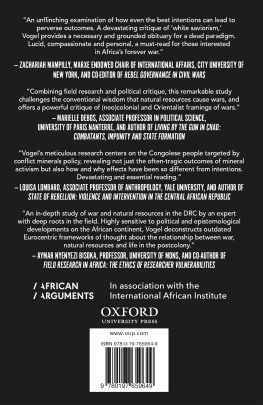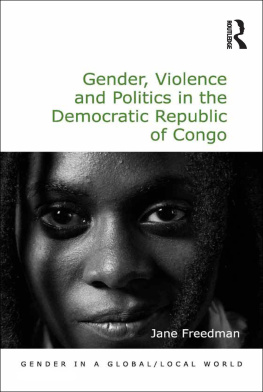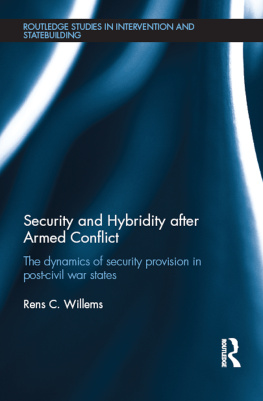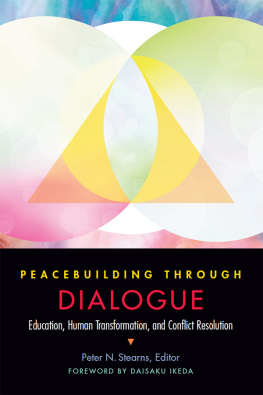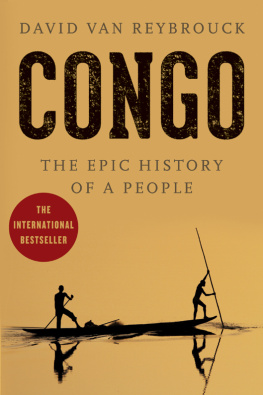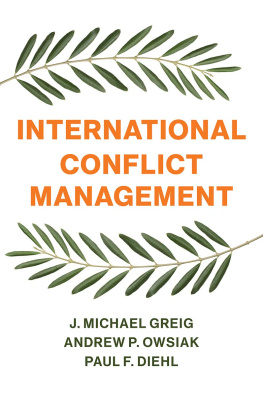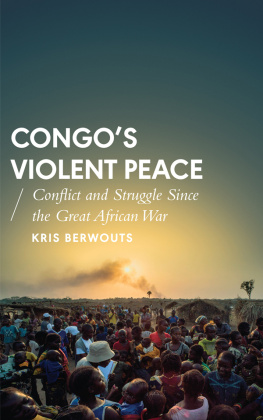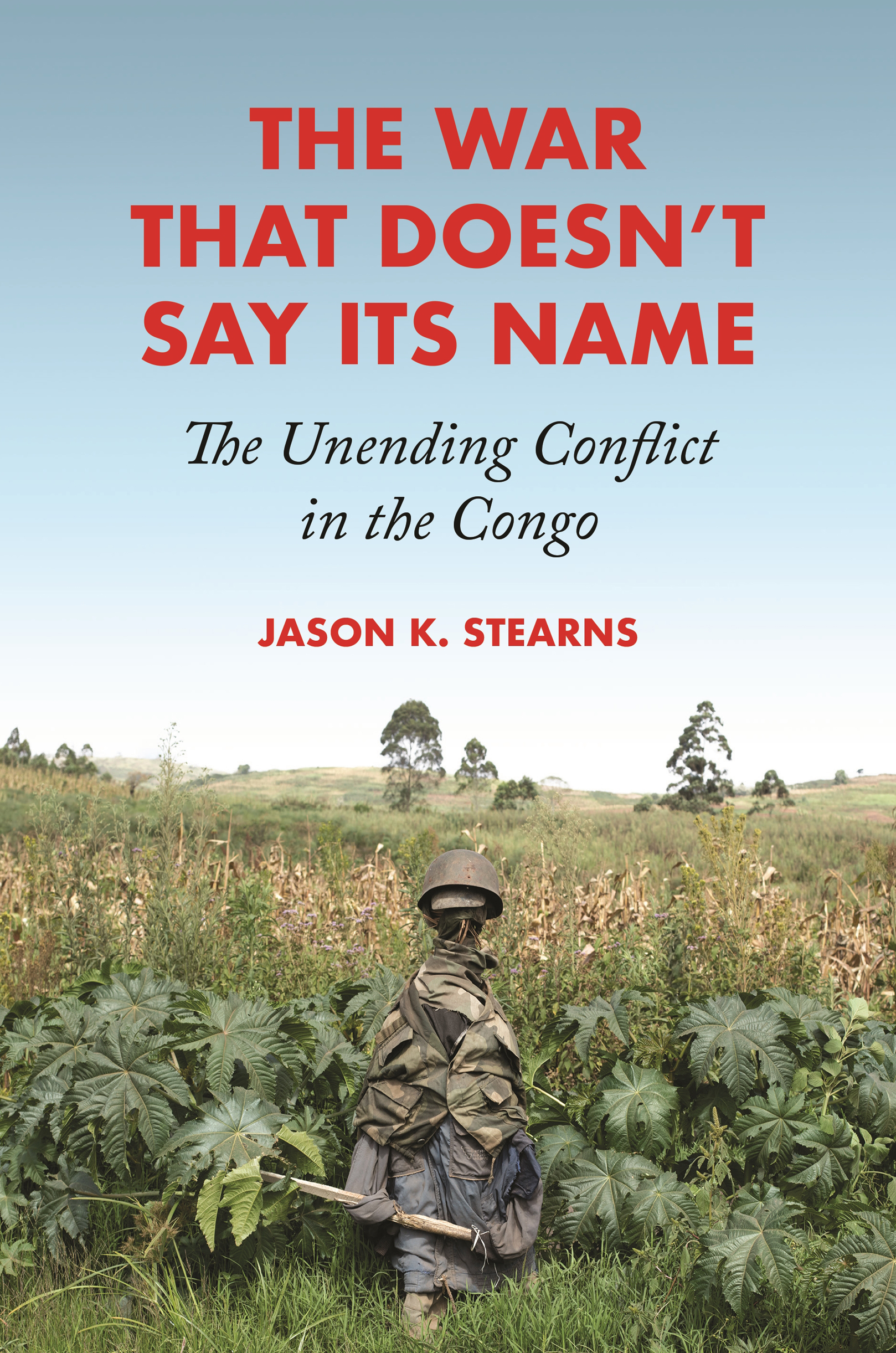THE WAR THAT DOESNT SAY ITS NAME
The War That Doesnt Say Its Name
THE UNENDING CONFLICT IN THE CONGO
JASON K. STEARNS
PRINCETON UNIVERSITY PRESS
PRINCETON & OXFORD
Copyright 2021 by Princeton University Press
Princeton University Press is committed to the protection of copyright and the intellectual property our authors entrust to us. Copyright promotes the progress and integrity of knowledge. Thank you for supporting free speech and the global exchange of ideas by purchasing an authorized edition of this book. If you wish to reproduce or distribute any part of it in any form, please obtain permission.
Requests for permission to reproduce material from this work should be sent to
Published by Princeton University Press
41 William Street, Princeton, New Jersey 08540
6 Oxford Street, Woodstock, Oxfordshire OX20 1TR
press.princeton.edu
All Rights Reserved
Library of Congress Cataloging-in-Publication Data
Names: Stearns, Jason K., author.
Title: The war that doesnt say its name : the unending conflict in the Congo / Jason K. Stearns.
Description: 1st. | Princeton : Princeton University Press, 2021. | Includes bibliographical references and index.
Identifiers: LCCN 2021013541 (print) | LCCN 2021013542 (ebook) | ISBN 9780691194080 (hardback) | ISBN 9780691224527 (ebook)
Subjects: LCSH: Civil warCongo (Democratic Republic) | Congo (Democratic Republic)History1997| Congo (Democratic Republic)Politics and government1997
Classification: LCC DT658.26 .S745 2021 (print) | LCC DT658.26 (ebook) | DDC 967.51034dc23
LC record available at https: / /lccn.loc.gov/2021013541
LC ebook record available at https: / /lccn.loc.gov/2021013542
Version 1.0
British Library Cataloging-in-Publication Data is available
Editorial: Bridget Flannery-McCoy and Alena Chekanov
Production Editorial: Natalie Baan
Jacket Design: Layla Mac Rory
Production: Erin Suydam
Publicity: Kate Hensley and Kathryn Stevens
Copyeditor: Martin Schneider
Map Design: Giovanni Salvaggio
Jacket image: Northeastern Ituri Province, DRC, February 2020. Dieudonne Dirole for Fondation Carmignac
For Baye and Masha.
Kupoteya njia ndiyo kujua njia.
CONTENTS
THE WAR THAT DOESNT SAY ITS NAME
1
Introduction
Die ich rief, die Geister, / Werd ich nun nicht los
(The spirits I called / I cannot drive away)
JOHANN WOLFGANG VON GOETHE
IN EARLY 2008, I set up my research base at the VIP hotel in downtown Goma, a trade hub in the eastern Congo nestled between the Nyiragongo Volcano and the shores of Lake Kivu. A peace conference was being held close by, and many of its attendees were staying at the hotel, where they also dined. After a year and a half of fighting, the Congolese government had decided to sit down with several dozen armed groups to talk peace.
Expectations ran high. While the main Congo wars, which had lasted from 1996 to 2003, had ended in a comprehensive peace deal, the fighting had escalated to the north of where we sat, displacing hundreds of thousands of people. This time, the peace brokers wanted to go further than just elite pacts and deal with the root causes of the conflict. For the first time, the sons and daughters of North and South Kivu have come together to speak about peace, security, and development, announced the minister of the interior in his speech. Envoys from the United States, the European Union, and the United Nations rubbed shoulders with armed group commanders, NGO workers, and civil society leaders.
The peace conference was, in many aspects, a positive and cathartic experience. It situated conflict as the historical product of local tensions over land and identity; community leaders were given space and time to express their anger and grief over decades of war, voicing emotions they had never had a chance to put into words in front of their rivals. I met a preacher and peace activist from the Banyamulenge community of South Kivu province who carried in his briefcase a fifty-page-long listhandwritten, on yellowing paperof all the people from his community who had been killed in the previous fifteen years. This is why our youths are fighting, he said. Jeannot Muhima, a combatant from just outside of Goma, described to me eloquently, calmly, how his sister had been raped and his younger brother killed by an armed group. He turned his head to show a shiny scar parting his hair on the back of his head. I barely escaped, he said. That is why I fight. But it is also why, more than anything, I want peace.
And yet, in the end, despite the best intentions of many of the participants, the Goma Peace Conference became a source of profiteering and accomplished little. Initially, six hundred people were supposed to attend, ranging from civil society leaders to customary chiefs and members of armed groups. However, attracted by per diems of $135, which were even given to people who lived nearby, attendance reportedly swelled to fifteen hundred people. Peacemaking has become a source of business around here, a friend, a rebel turned human rights activist, cynically remarked, watching armed group commanders walk past the lunch buffet at the VIP hotel, plates piled perilously high with food. In the evening, the bars and nightclubs of Goma were full of delegates to the peace conference; one establishment, having run out of Congolese beer, had to source it from neighboring Rwanda.
As in subsequent peace talks, negotiations also became a tactic, a means of maneuvering. A United Nations official shared confidential reports with me about how both the armed groups and the national government were rearming and recruiting new troops during the truce. These guys were never serious, she told me. And we play along with their game. In the end, after months of laborious negotiations, fighting erupted again to the north of Goma, pushing all the way into the outskirts of this town of several hundred thousand people.
How could it be that the violence persisted, when so many of the key actorssoldiers, civilians, diplomats, and members of civil societywanted it to end? This is the puzzle that this book addresses. Despite billions in international aid, a national army of 130,000 pitted against ragtag rebel groups, and the largest United Nations peacekeeping operation in the world, conflict has simmered on until the present day.
These snapshots from the Goma Peace Conference offer pieces of an answer. While many suffered from the conflict, a slim class of commanders and politicians emerged for whom, plates laden high, the conflict had become a source of survival and profit. These protagonists have had little interest in bringing an end to a conflict that was peripheral for the government but for many combatants had become a livelihood. Conflict, as well as peacemaking, had become an end in itself, the fighting carried forward by its own momentum. Meanwhile, foreign donors and diplomats provided food and urgent health care for millions in need, preventing the Congolese state from collapsing, but were unable to bring about transformational change. Too big to fail was a quip I often heard from diplomats, riffing on the financial crisis unfolding in the United States at the time.
Congolese have developed their own, often witty ways to express this sad state of affairs. No Nkunda No Job, was a popular saying in Goma around this time, referring to the main rebel commander and suggesting that violence had become a source of employment for foreign aid workers and local militia. The epithet Ebola business surfaced in 2018, when donors pumped in a billion dollars to stem an epidemic of hemorrhagic fever in northern Congo, creating a cottage industry of Congolese security contractorssome of whom stoked violence so as to increase demand for their servicesrental car dealers, and hoteliers. The eccentric Congolese pop star Koffi Olomide put it differently, alluding to the propensity to turn adversity into a source of profit, even pleasure: Oyo eza systme ya lifelomoto ezopela kasi tozo zika te (We live in the system of helleverywhere the fire is raging, but we dont get burned).


